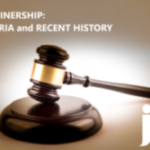Examinership – Can a Company obtain Court Protection once a Receiver is appointed?
by Robert Burke
Examinership Timelines
The Companies (Miscellaneous Provisions)(Covid-19) Act 2020 was recently signed into law and this legislation included a change to the examinership legislation. The change implemented was to extend the period of protection up to a total of 150 days with the additional 50 days being provided in “exceptional circumstances”. Exceptional circumstances are to include, but are not limited to, “procedures to implement the provision of new finance to the company and adverse effects of Covid-19”. In a previous article my colleague Joseph Walsh provided commentary in relation to this proposed change (Corporate Restructuring).
Here, I look at another important timeline in examinership legislation, a timeline I believe should be assessed in the context of the current environment, where there remains considerable restrictions on trade.
Examinership legislation is contained in Part 10 of the Companies Amendment Act 2014 and Section 512 (4) provides that:
“The court shall not give a hearing to a petition if a receiver stands appointed to the whole or any part of the property or undertaking of the company the subject of the petition and such receiver has stood so appointed for a continuous period of at least 3 days prior to the date of the presentation of the petition”.
The 3 day rule presented a significant challenge to directors of a company considering seeking the protection of the Court prior to Covid and this challenge can only be exacerbated in the current economic climate. A receiver can be ousted from their role by the Court, only if the three day rule is met.
The legislation is unambiguous, once a receiver is appointed for 3 continuous days, the Court is unable to hear a petition for the appointment of an Examiner. In order to make an application for Court protection, the following must be completed:
- An Independent Expert’s Report (“IER”) must be prepared by way of evidence that the Company has a reasonable prospect of survival (the Court may hear an application in the absence of the IER in exceptional circumstances, however the appointment of a receiver cannot be considered as the exceptional circumstance);
- A legal team must prepare a petition to include an affidavit of the petitioner;
- The petition must be filed with the Central Office of the Court.
In circumstances where a receiver has been appointed, and the above three steps are not all concluded within the 3 day period the Court cannot and will not hear the application for the appointment of an Examiner.
Appointment of Receivers during Covid
In recent months our office has engaged with dozens of business owners. A common misconception is the belief that secured creditors are not currently enforcing charges and appointing receivers. This is not the case and while the numbers of receivers appointed in the period March to August 2020 are lower than the same period in 2019 there has still been significant activity, as summarised in the table below.

In reviewing the statistics on the appointment of receivers during the above period, the majority of appointments (58%) relate to companies operating in the construction sector.
What you should do
The priority for any director should be transparent regular engagement with a company’s secured creditor and in the vast majority of cases a consensual agreement can be reached. However, where there is a potential threat to a company which would otherwise have a reasonable prospect of survival, taking expert advice at an early stage is strongly recommended and in some cases it would be prudent to engage an Independent Expert to prepare a report on the company, in order that the option of examinership could be considered, even where a receiver has been appointed.
Contact
Joseph Walsh Robert Burke
Managing Director Director


